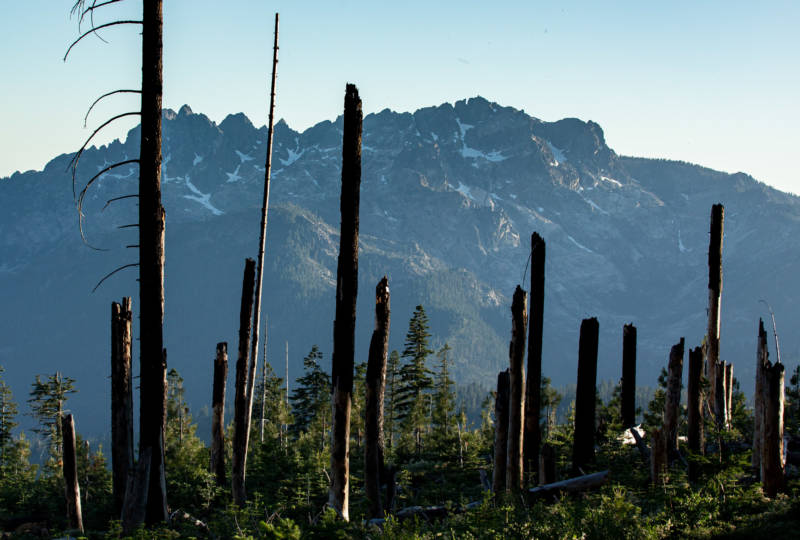Montana has also been hard hit. In 2017, a flash drought led to a record 1.4 million acres being burned there. The state's portion of the $400 million firefighting price tag, some $74 million, nearly drained the state's budget and forced lawmakers into a special session to fill the gap.
Daines and Feinstein have been working on forest management reform proposals for several years, and the Paradise tragedy may be what pushes the legislation through a divided Congress, Daines said. He called the bipartisan effort a breakthrough.
"We have a strong friendship and we've worked together on other issues," Daines said of his relationship with Feinstein. "Both of our states are dealing with serious wildfire issues, and particularly public safety issues."
Daines' and Feinstein's legislation will include provisions to expedite logging, the removal of dead and dying trees, and other preventive fire treatment projects around roads, trails and transmission lines, such as those that caused the fire in Paradise.
Cal Fire investigators found that PG&E power lines have sparked a series of devastating wildfires over the past several years, including the Camp Fire.
The Feinstein-Daines bill will also seek to make it harder to sue to block logging projects on federal land.
Daines spokeswoman Katie Schoettler did not provide details but said the bill would address a past 9th U.S. Circuit Court of Appeals decision on how federal agencies consult with each other on forest management plan updates, a ruling that has been the basis of several lawsuits by conservation groups.
Daines and other Montana leaders say those groups have abused the legal system by filing frivolous lawsuits to stop logging projects in national forests. The groups contend the logging projects have the potential to harm the habitat of threatened and endangered species.
The bill also would prioritize large-scale forest management projects in California and Montana, such as the removal of dead and dying trees, and encourage the Forest Service to speed up restoration and reforestation efforts on burned land.

